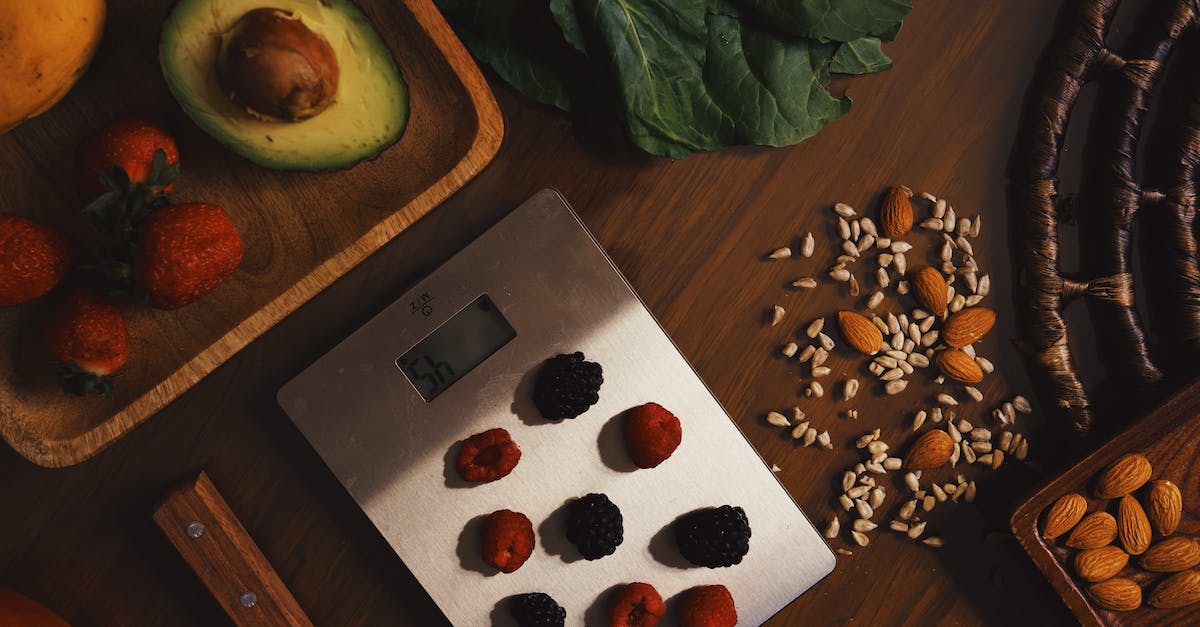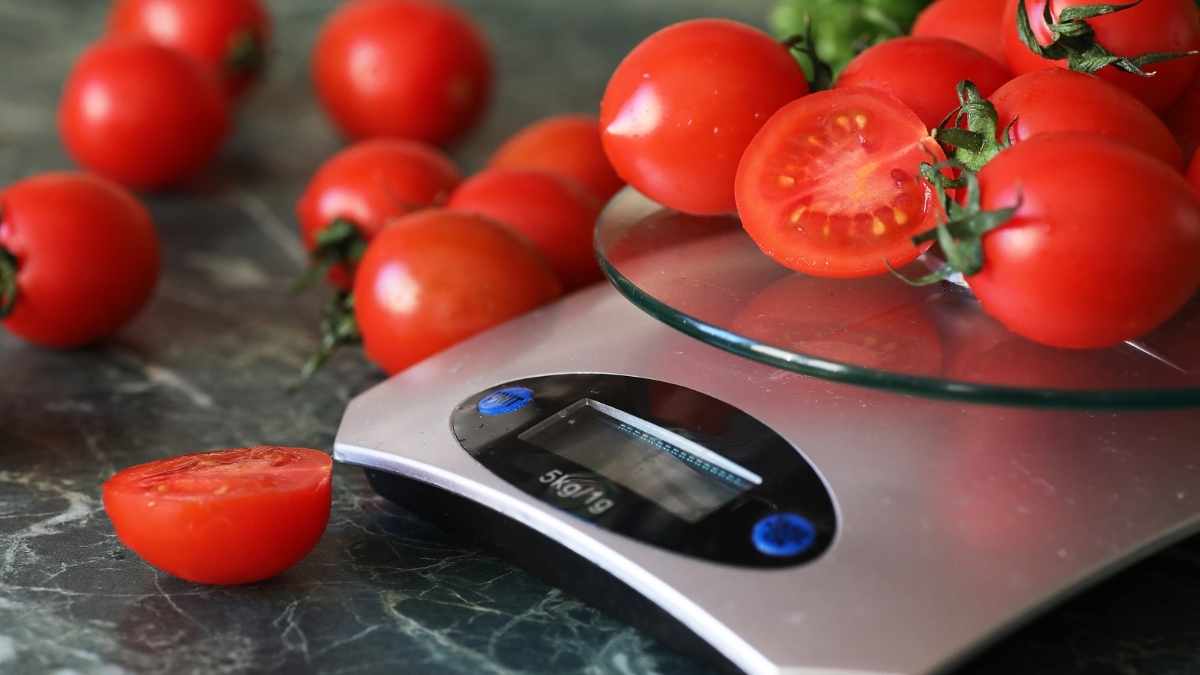Ah, kitchen scales – the unsung heroes of the culinary world. They’re the workhorses that help make our recipes as precise as possible, ensuring that every ingredient we add to the mix is measured to perfection. But, like any hard-working kitchen tool, our trusty scales can sometimes start to show signs of wear and tear.
Fear not, fellow kitchen scale enthusiasts, because today we’re diving into the wonderful world of kitchen scale cleaning and maintenance. That’s right – we’re going deep into the nitty-gritty details of how to keep your scales in tip-top shape, from cleaning the display screen to ensuring that the platform is level and balanced.
Now, I know what you’re thinking. “Cleaning and maintenance? That sounds about as exciting as watching paint dry!” But trust me, my kitchen counterparts, once you start taking good care of your scales, you’ll notice a world of difference in the accuracy of your recipes. Plus, nothing beats the satisfaction of whipping up a batch of cookies with measurements that are spot-on.
So buckle up, grab your favorite kitchen spray, and let’s show those scales some TLC – because they deserve it!
Why Kitchen Scale Cleaning and Maintenance is Important

As a proud owner of a kitchen scale, you know how important it is in your daily cooking routine. It is the perfect tool for precision cooking and baking, ensuring your ingredients are measured accurately for the perfect outcome. However, just like any other kitchen equipment, your scale needs proper care and attention to keep it in good condition and functioning correctly. Here are reasons why kitchen scale cleaning and maintenance should not be overlooked:
Hygiene: Your kitchen scale is exposed to different ingredients, some of which can be a breeding ground for bacteria and other disease-causing microorganisms. Proper cleaning ensures that any dirt or debris is removed, ensuring your scale is clean and hygienic to use.
Accuracy: The accuracy of your scale is affected by debris on the platform and around the sensors. Dirt and debris can also cause inaccurate readings, which can affect your cooking results. Regular cleaning and calibration ensure accurate measuring, which is essential for precision cooking.
Durability: Regular cleaning and maintenance will ensure your scale lasts longer. Neglecting your scale’s maintenance can result in damage to the sensors, display, or other internal parts. Avoiding spills and removing any debris that may accumulate around the sensors can prevent damage and keep your scale in top condition.
Efficiency: A well-maintained and cleaned scale operates efficiently, and you don’t have to worry about inaccurate readings or cleaning it in between use. It makes cooking and baking more enjoyable, and you can concentrate on the end product.
In conclusion, cleaning and maintaining your kitchen scale should not be neglected. It is an essential tool in your kitchen, and proper care ensures accurate measurements, durability, efficiency, and hygiene. Make cleaning and maintenance part of your kitchen routine, and you will enjoy the benefits of a well-functioning tool.
Basic Cleaning Supplies Needed

once a week to keep it in good condition.
How to Clean Your Kitchen Scale

- Gather Supplies: Before cleaning your kitchen scale, gather supplies such as a soft cloth, a small bowl, warm water, and mild detergent.
- Unplug and Disassemble: Make sure the kitchen scale is unplugged and disassemble any detachable parts, such as the weighing platform and battery compartment, if possible.
- Clean the Platform: Using the soft cloth and warm water with gentle pressure, wipe the weighing platform clean. Be sure to avoid using any abrasive materials that could scratch or damage the scale surface.
- Clean Detachable Parts: If your kitchen scale has detachable parts, clean them individually with the same technique as the platform.
- Clean the Buttons: With a slightly damp cloth, wipe the buttons of the kitchen scale, being sure not to get too much water inside the device.
- Dry and Reassemble: Dry all parts of the kitchen scale thoroughly with a clean cloth before reassembling the device. Make sure all parts are secured in place before reconnecting the power supply.
- Regular Maintenance: Regularly cleaning your kitchen scale can prevent food particles and buildup from becoming difficult to remove. It’s advisable to clean your kitchen scale every few weeks, or more frequently if you use it daily.
- Protect Your Scale: Always store your kitchen scale in a dry and clean area, away from moist and humid surroundings. Avoid using harsh chemicals to clean your kitchen scale and do not immerse it in water or other liquids. These actions could potentially damage your device.
- Calibrate Your Scale: If you feel that your kitchen scale is not providing accurate readings, you may need to recalibrate it. Refer to your manufacturer’s instruction manual for guidance on how to recalibrate your device and ensure accurate measurements.
In conclusion, ensuring that your kitchen scale is properly cleaned and maintained can extend the life of your device, prevent buildup and inaccurate readings, and ensure that your food measurements are accurate. With these simple tips, your kitchen scale should continue to provide you with accurate readings and precise measurements for many years to come.
Deep Cleaning Your Kitchen Scale

Keeping your kitchen scale clean is not only important for hygiene reasons, but it also ensures accurate measurements. Here are a few tips for deep cleaning and maintaining your kitchen scale:
- Disassemble the scale: Start by unplugging the kitchen scale and dismantling it. This will allow you to clean every part of the scale.
- Clean with soap and water: Using mild soap and warm water, use a soft cloth to wipe down the scale’s main body. Wipe down the display and weighing platform as well. Avoid spraying water onto the display and any electrical parts or connections.
- Use rubbing alcohol: If there are any stubborn stains or spots on your kitchen scale, you can use rubbing alcohol. Dip a cotton ball or cloth into rubbing alcohol and gently scrub the affected area. Be sure to avoid the display and any electrical parts.
- Reassemble the scale: Allow all the parts of your kitchen scale to dry fully before reassembling. Make sure all the parts are properly aligned and securely tightened before turning on the kitchen scale.
Taking care of a kitchen scale is straightforward and easy, yet essential to maintain its longevity and functionality. Clean and maintain your scale regularly and enjoy accurate and consistent measurements every time.
Maintaining Your Kitchen Scale

Keeping your kitchen scale in great shape has many benefits. Not only will you extend the life of your scale, but you will also ensure accurate and consistent readings. Here are some tips for maintaining your kitchen scale:
- Keep it clean: Regularly clean your kitchen scale by wiping it down with a damp cloth. Avoid using harsh cleaning products or immersing it in water, as this can damage the scale’s sensitive components.
- Store it correctly: Store your kitchen scale in a cool, dry place away from direct sunlight. Avoid storing it in a humid or damp area, as this can cause damage and shorten its lifespan.
- Replace the batteries: If your kitchen scale uses batteries, replace them regularly. A low battery can affect the accuracy of your readings.
- Calibrate your scale: Over time, your kitchen scale may become inaccurate due to regular use or accidental bumps. To ensure accurate readings, calibrate your scale regularly using a calibration weight or another reliable object of known weight.
- Handle with care: When using your kitchen scale, handle it gently to avoid damaging the weighing surface or other sensitive components. Avoid placing heavy objects on the scale or using it for purposes it was not intended for.
By following these tips, you can ensure your kitchen scale remains in great condition and provides you with accurate readings for years to come. So, take good care of your kitchen scale and enjoy precise measurements in all your culinary adventures!
Troubleshooting Kitchen Scale Issues

As a kitchen scale enthusiast, keeping your kitchen scale in top shape is crucial to obtaining accurate measurements. However, even the most well-maintained kitchen scale can experience issues. Here are some common problems and troubleshooting tips to help you handle them.
1. Inaccurate readings: If your kitchen scale is showing inconsistent or incorrect measurements, check if it is properly calibrated. If not, calibrate it using a calibration weight or consult the manufacturer’s instructions.
2. Battery issues: If your scale won’t turn on or if the readings are fluctuating, the battery might be dead or low. Replace the battery with a new one and try again.
3. Overload: Some kitchen scales may have a weight limit, and if you go over it, the scale will show an error message or stop functioning. Remove some weight from the scale and try again.
4. Uneven surfaces: If your kitchen scale is placed on an uneven surface, it can affect the accuracy of measurements. Place the scale on a flat, stable surface for accurate readings.
5. Buildup of debris: Over time, food particles and spills can accumulate on your kitchen scale, affecting its accuracy. Clean your scale regularly with a damp cloth and mild detergent. Avoid using harsh chemicals as they may damage the scale.
6. Loose connections: If your kitchen scale has loose connections, it may show sporadic readings or stop functioning altogether. Check for loose screws or wires and tighten them if necessary.
By troubleshooting these common kitchen scale issues, you can maintain the accuracy of your measurements and prolong the lifespan of your scale.
Conclusion
And there you have it, my fellow kitchen scale enthusiasts! Cleaning and maintaining your kitchen scale doesn’t have to be a tedious chore. With a little bit of love and effort, your trusty kitchen scale can continue to serve you faithfully in all your culinary adventures.
Remember to always use the right cleaning materials and handle your kitchen scale with care. Don’t forget to give it a good wipe down after every use and store it somewhere safe and dry.
In the end, having a well-maintained kitchen scale can make all the difference in your cooking and baking endeavors. So go forth and show your kitchen scale some love – it deserves it!
And who knows, maybe one day, you’ll become known as the kitchen scale whisperer, with a collection of beautiful and well-maintained scales that would make any home cook envious. Happy weighing, everyone!

